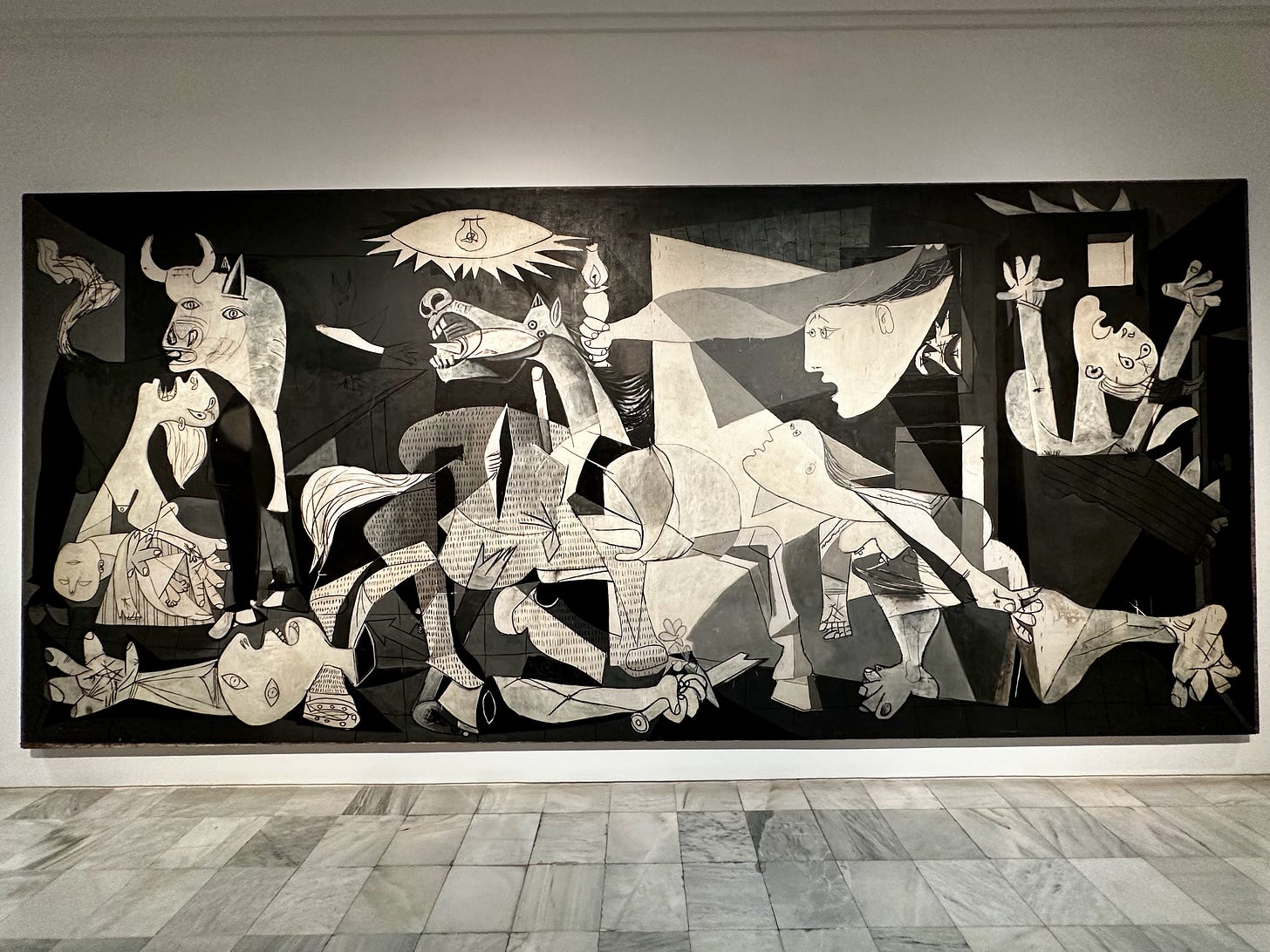A Visit for One: Guernica and the Weight of Seeing
Why I Travelled to Madrid Just to See Picasso’s Guernica in Person
Guernica - Pablo Picasso (Pablo Ruiz Picasso)
Malaga, Spain, 1881 - Mougins, France, 1973
Date: 1937 (May 1st-June 4th, Paris)
Technique: Oil on canvas
Dimensions: 349,3 x 776,6 cm
I didn’t come for the museum. Not really. I came for one painting. Not even a painting, if we’re being honest, but the painting—Guernica by Pablo Picasso.
It’s not the first time I’ve set foot inside the Museo Reina Sofía in Madrid. But this time, I walked past the sculptures, the other canvases, the murmurs of guided tours and selfie sticks, as if everything else were happening on a different frequency. My steps led me straight to Room 205.10, like a pilgrimage. And I wasn’t alone. You’re never alone in the presence of Guernica.
There it was—monolithic, monstrous in scale, and yet somehow silent. Oil on canvas, yes. But also: aftermath. Grief. Smoke. Screams frozen in black, white, and ash-grey. Nearly eight meters wide, and somehow it still feels too small to hold all that it carries.
You can read all you want about the German bombing of the Basque town of Guernica in 1937, about Picasso’s outrage and urgency, about how the painting became a weapon of witness at the Spanish Pavilion in Paris. You can trace the zigzag path of its exile—how it ended up in MoMA, sheltered from a Spain torn by Franco and fear, and how it finally returned home in 1981, waiting for a democracy worthy of it.
But none of that prepares you for standing in front of it. For realising that this isn’t a painting you “view”—this is a painting that swallows you. You don’t study it so much as survive it.





